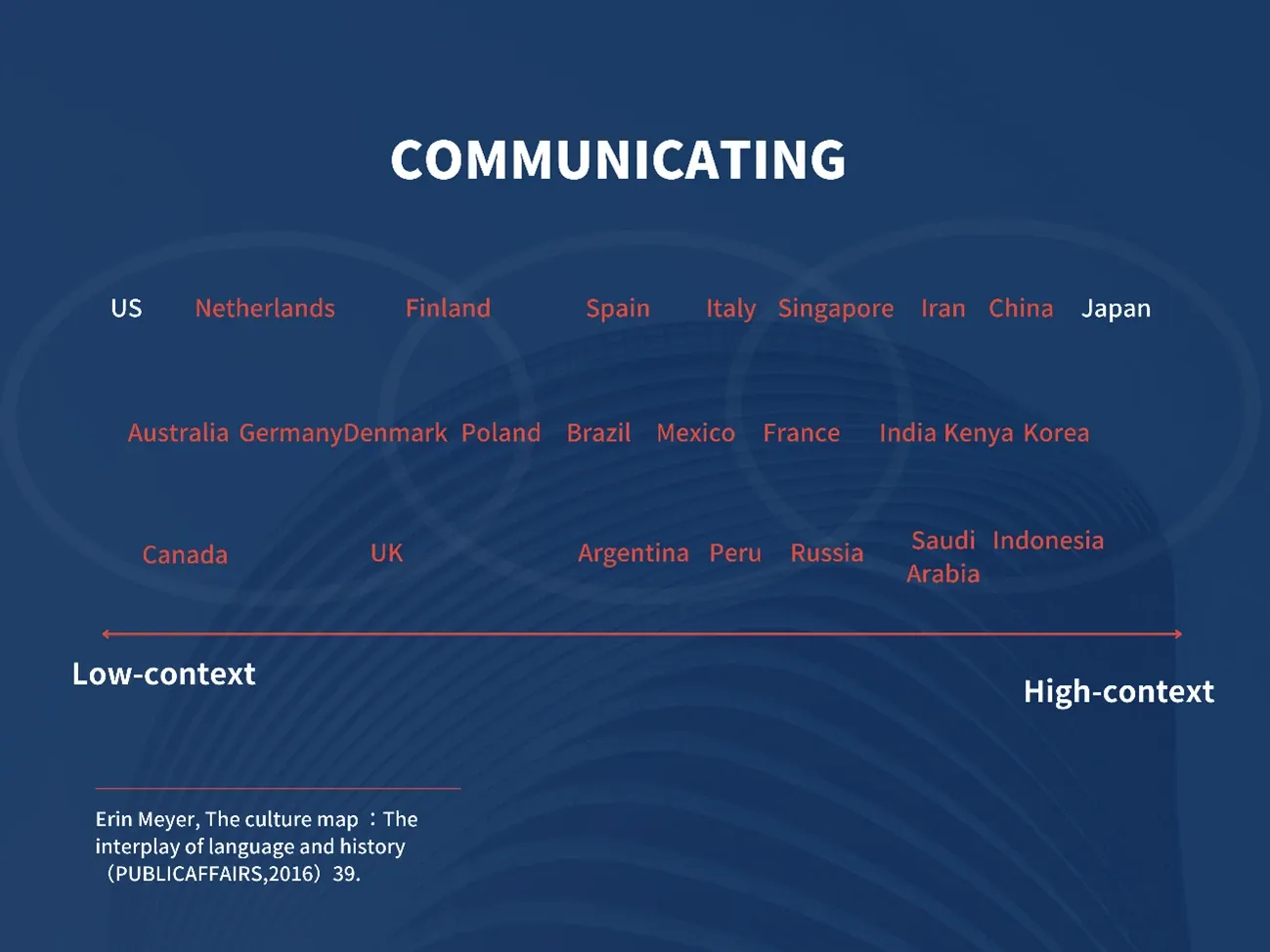High Context vs. Low Context Communication
Japan has a very unique business culture, and while it can be challenging to work in, there are some values that can be difficult to understand and can lead to some unnecessary stress. In this article, I will introduce communication styles in the Japanese workplace in the context of low-context and high-context. This may help to clear up some questions you may have at your workplace.

Communication Styles in the Japanese Workplace
It is very important to "read the atmosphere" as well as to know the business practices such as "Nemawashi" and "Ringi". Reading the atmosphere means to understand what the other person wants from the situation and to act accordingly where it may not be so obvious in the words that they use.
For example, in Japan, if a manager says to a team member, "Do this when you're free," the work will be done in a timely manner without any problems even without clear instructions. This is because it is customary to read the atmosphere and understand what the other person wants, even if it is not clearly stated in words. For this reason, "reading the atmosphere" is directly related to the evaluation of work in Japan compared to other countries, and even if you are excellent at your job, you may lessen your reputation if you cannot read the atmosphere.

Low-context and high-context
Why is "reading the atmosphere" so important in Japan?
Read about the differences between low-context and high-context countries in the book "The Culture Map " by Erin Meyer to find out.
- High-context: Good communication is sophisticated, nuanced, and layered. Messages are both spoken and read between the lines. Messages are often implied but not plainly expressed.
- Low-context: Good communication is precise, simple, and clear. Messages are expressed and understood at face value. Repetition is appreciated if it helps clarify the communication.
The distribution in each country is shown in Figure 1. Japan is the most high-context country in the world, and the U.S. is the most low-context country. Of course, there are individual differences in personality within a country, but there is a major trend for the country as a whole.

FIGURE 1
Erin Meyer, The culture map: The interplay of language and history (PUBLICAFFAIRS,2016)39.
High-context cultures tend to have a long shared history
Japan is an island nation with a homogeneous population and has had little influence from outside the country for a long time, so it has naturally fostered a society with a culture of mutual understanding and sensitivity to the intentions of others. As a result, the culture has become one that does not communicate things clearly, but expects the other person to understand the differences in nuance.

The United States, on the other hand, is made up of many ethnic groups with different backgrounds, so people are expected to communicate their intentions straightforwardly and clearly to avoid misunderstanding.
This is how people's communication style has been shaped by the history of their country and the reason why Japan places so much importance on “reading the atmosphere” and leans towards non-verbal communication.
Erin Meyer, The Culture Map: The Interplay of Language and History (PUBLICAFFAIRS,2016) p40.
By understanding the difference between high context and low context culture, you can not only understand Japanese business culture, but you can also apply it to communicating with people from different cultures. Why not try to incorporate this concept into your daily life? It will help you better understand the way that your Japanese colleagues may interact with you and improve your communication with them.










